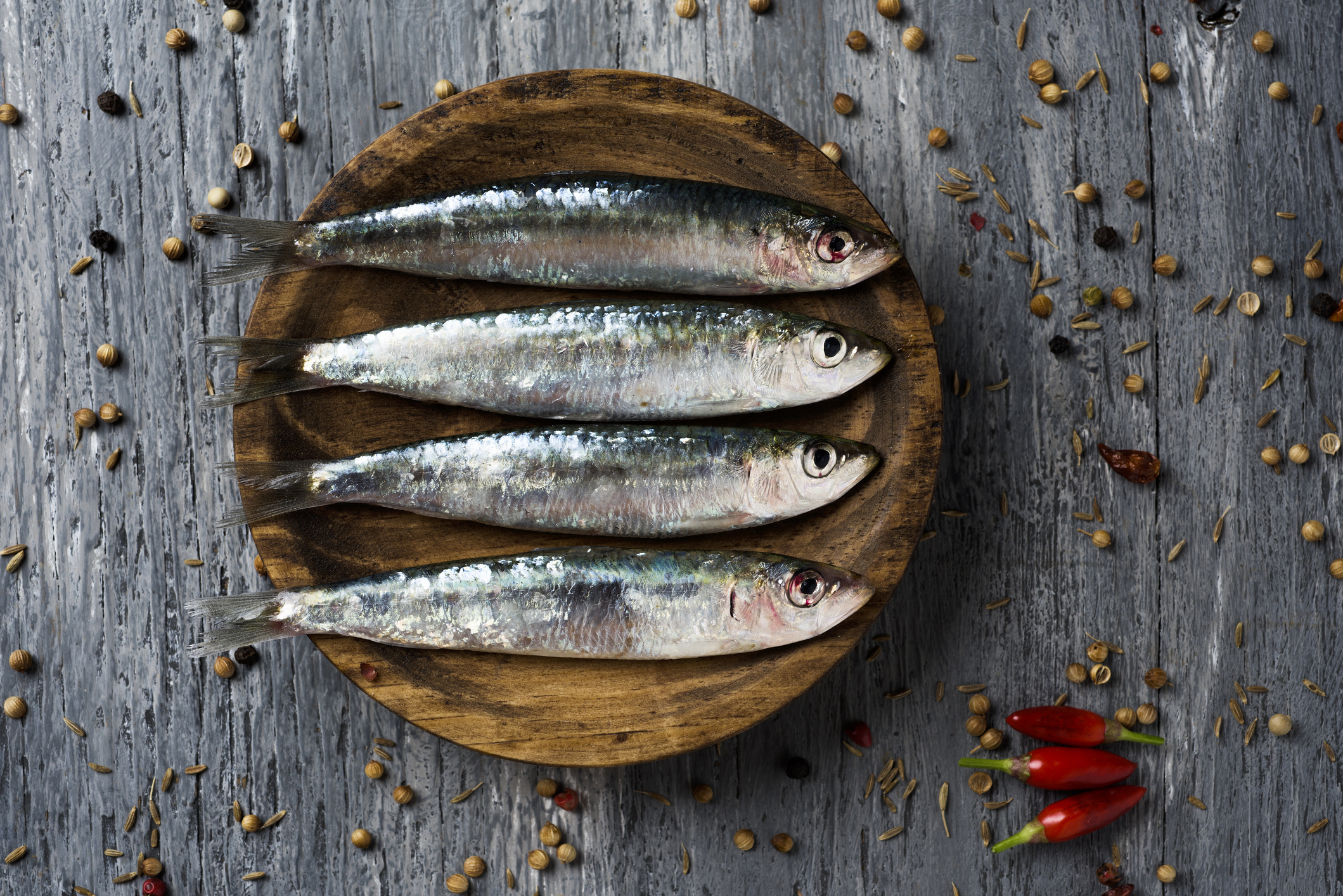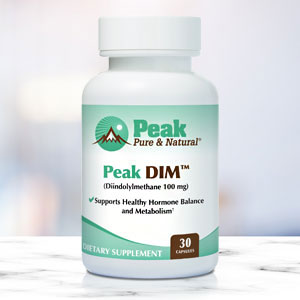Get Easy Health Digest™ in your inbox and don’t miss a thing when you subscribe today. Plus, get the free bonus report, Mother Nature’s Tips, Tricks and Remedies for Cholesterol, Blood Pressure & Blood Sugar as my way of saying welcome to the community!
Sardines: A superfood for men

I recently had the privilege of having a full blood and nutritional profile undertaken by the head nutritionist for Red Bull — the guy that looks after all their professional athletes: 20 vials of blood and a report that came back as thick as a Jack Reacher novel. Comparing the amount of data in my report to what you get from your local GP blood work-up was like comparing an instruction manual to build a model airplane to one to build a 747. I spent days devouring it.
When I eventually had a follow up consultation, the first thing out of his mouth was, “You know you have the best omega-3 profile of anyone I have ever tested — ever — what do you take? “Well, I eat a lot of sardines” I said.
In fact, I went on to say that when I travel in Europe in summer, some weeks that is all I live on — lunch and dinner. I think my longest stretch in Greece a few years back was 10 days. Back home in California I eat a non-BPA can of the Vital Choice brand every day or second day at a minimum.
Sardines contain good, very good, and excellent amounts of at least a dozen important nutrients, especially for men’s health. A 3.2 ounce serving of Atlantic sardines in water provides the following Daily Value percentages:
- Vitamin B12: 337.9 percent.
- Selenium: 86.9 percent.
- Phosphorus: 63.5 percent.
- Omega-3: 60.8 percent.
- Protein: 44.6 percent.
- Vitamin D: 43.7 percent.
- Calcium: 34.6 percent.
- Vitamin B3 (niacin): 29.7 percent.
- Iodine: 24 percent.
- Copper: 18.8 percent.
- Vitamin B2 (riboflavin): 16.1 percent.
- Choline: 16 percent.
These nutrients (as well as others) are the makings of a perfect superfood for men. Here’s why:
Heart health
The omega-3 fatty acids EPA and DHA can lower cholesterol and triglyceride levels. Omega-3s also work to prevent excessive blood clotting and help the arteries to dilate and relax, which in turn works to maintain normal blood pressure.
Vitamin B12 plays a critical role in keeping levels of the artery-damaging substance called homocysteine in balance. High homocysteine levels contribute to atherosclerosis.
Selenium is important for maintaining healthy blood vessels and heart health.
Phosphorus has a role in maintaining a regular heartbeat.
Calcium in the bloodstream has an important role in maintaining a healthy heart and blood pressure.
Vitamin B3 (niacin) can assist in managing cholesterol as well as blood pressure. (Al-Mohaissen; Bays)
Copper plays a part in regulating heart rhythm and reducing cholesterol.
Bone health
Sardines are one of the few foods that provide excellent amounts of vitamin D, which is critical for bone health. These tiny fish also provide very good levels of two other minerals essential for bone health: calcium and phosphorus. Vitamin D assists in the absorption of bone-building calcium, and phosphorus has a key role in strengthening the bone matrix.
Sexual health/erectile dysfunction
Vitamin B12 can significantly increase sperm counts in men who have low values. The nutrient also helps increase sperm motility rates. (Kumamoto)
Omega-3 fatty acids help blood vessels to relax and dilate, which then improves blood flow to the penis and may help with erectile dysfunction.
A healthy level of phosphorus (1,200 mg daily) is necessary to help maintain sexual health, especially libido and erectile function, as well as sperm motility.
Muscle Health
Omega-3 fatty acids help increase lean muscle mass and reduce body fat mass. (Noreen)
The protein in sardines are essential for building, maintaining, and repairing muscle and connective tissue.
Phosphorus works with the B vitamins to maintain healthy muscle contractions. Phosphorus also works to eliminate muscle weakness and fatigue as well as the process of protein formation.
Calcium in the bloodstream is essential for healthy muscle contractions and muscle tone.
Riboflavin is important in helping muscles heal and repair.
Choline is a precursor of acetylcholine, a substance that is essential for muscle and nerve function.
Brain Health
Omega-3 fatty acids, and especially DHA, plays a critical role in brain health and cognitive performance. DHA may improve cognitive function relating to memory, speed of performing brain tasks, and learning. (Stonehouse) Omega-3 fatty acids, in the form of fish oil, administered to aged mice were found to protect the brain by delaying age-related mitochondrial dysfunction. The mitochondria are the energy-producing organelles in your cells. (Afshordel)
Vitamin B12 may relieve depression by helping to produce serotonin, the neurotransmitter associated with feelings of calm. Vitamin B12 also has an important role in sleep because it is a key partner in the production of melatonin. Levels of this hormone decline with age, so it is important to maintain healthy levels of this vitamin.
Phosphorus deficiency is associated with an increased risk of dementia and cognitive dysfunction.
Prostate health
Omega-3 fatty acids can help prevent prostate cancer cell growth and reduce the risk of developing prostate cancer, including advanced cancer. (Fradet; Hedelin; Leitzmann)
Vitamin D, specifically the hormonally active form called calcitriol, has been shown to inhibit damaging actions of prostaglandins and suppress inflammatory activities in prostate cancer cell. This form of vitamin D also can interfere with tumor growth and spread. (Krishnan)
Most of the health benefits of sardines are even more important as you age and you focus more on your heart, brain, male “plumbing” and prevention of chronic disease. The canned sardines are great and convenient if you can get them in non-BPA cans. Otherwise, your local fish supplier may have them seasonally which you can cook yourself (best on the grill).
I sometimes ask people I meet what are the two food items they would take to a desert island if they were stranded — like Tom Hanks in “Castaway.” For me, I just need to master that fish spear he used and learn to build a net and I will be fine — as long as there are coconuts for coconut water. That’s enough for me to survive and thrive.
Editor’s note: There are perfectly safe and natural ways to decrease your risk of blood clots including the 25-cent vitamin, the nutrient that acts as a natural blood thinner and the powerful herb that helps clear plaque. To discover these and other secrets of long-lived hearts, click here for Hushed Up Natural Heart Cures and Common Misconceptions of Popular Heart Treatments!
REFERENCES
Afshordel S et al. Omega-3 polyunsaturated fatty acids improve mitochondrial dysfunction in brain aging–impact of Bcl-2 and NPD-1 like metabolites. Prostaglandins Leukotrienes, Essential Fatty Acids 2014 Jun 9
Al-Mohaissen MA et al. Niacin: from mechanisms of action to therapeutic uses. Mini Reviews in Medicinal Chemistry 2010 Feb 19
Bays HE et al. Blood pressure-lowering effects of extended-release niacin alone and extended-release niacin/laropiprant combination: a post hoc analysis of a 24-week, placebo-controlled trial in dyslipidemic patients. Clinical Therapeutics 2009 Jan; 31(1): 115-22
Fradet V et al. Dietary omega-3 fatty acids, cyclooxygenase-2 genetic variation, and aggressive prostate cancer risk. Clinical Cancer Research 2009; 15:2559
Galic J, Simunovic D. Prostate disease prevalence with epidemiological and hormonal analysis in randomly selected male population in Crotia. Coll Anthropology 2008; 32(4): 1195-1202
Hedelin M et al. Association of frequent consumption of fatty fish with prostate cancer risk is modified by COX-2 polymorphism. International Journal of Cancer 2007 Jan 15; 120(2): 398-405
Krishnan AV, Feldman D. Molecular pathways mediating the anti-inflammatory effects of calcitriol: implications for prostate cancer chemoprevention and treatment. Endocrine Related Cancer 2010 Jan 29; 17(1): R19-38
Kumamoto Y et al. Clinical efficacy of mecobalamin in treatment of oligozoospermia: results of double-blind comparative clinical study. Hinyokika Kiyo 1988; 34:1109-32
Leitzmann MF et al. Dietary intake of n-03 and n-6 fatty acids and the risk of prostate cancer. American Journal of Clinical Nutrition 2004 Jul; 80(1): 204-16
Noreen EE et al. Effects of supplemental fish oil on resting metabolic rate, body composition, and salivary cortisol in healthy adults. Journal of the International Society of Sports Nutrition 2010; 7:31
Stonehouse W. Does consumption of LC omega-3 PUFA enhance cognitive performance in healthy school-aged children and throughout adulthood? Evidence from clinical trials. Nutrients 2014 Jul 22; 6(7): 2730-58















